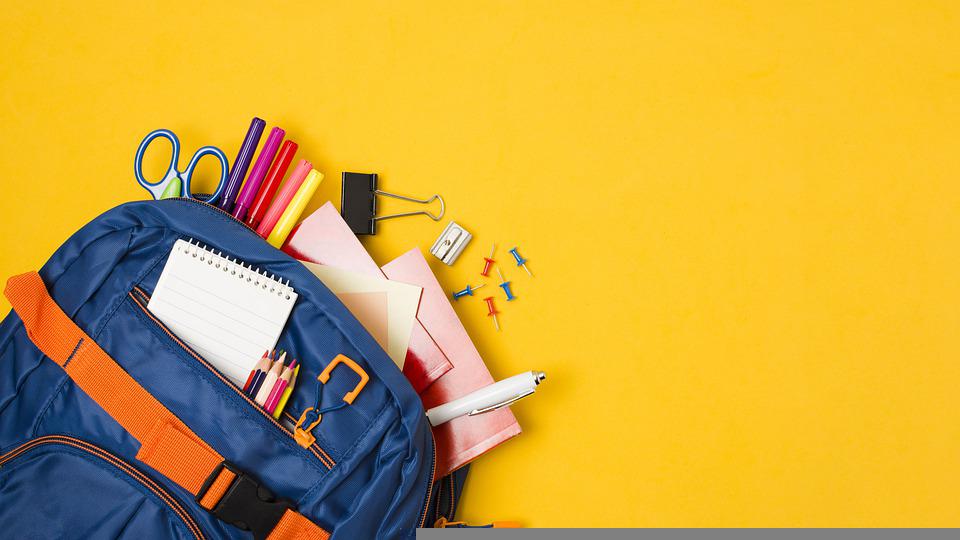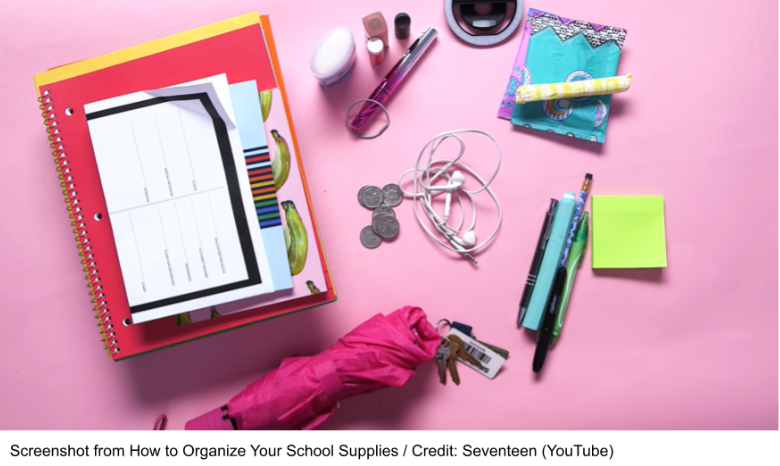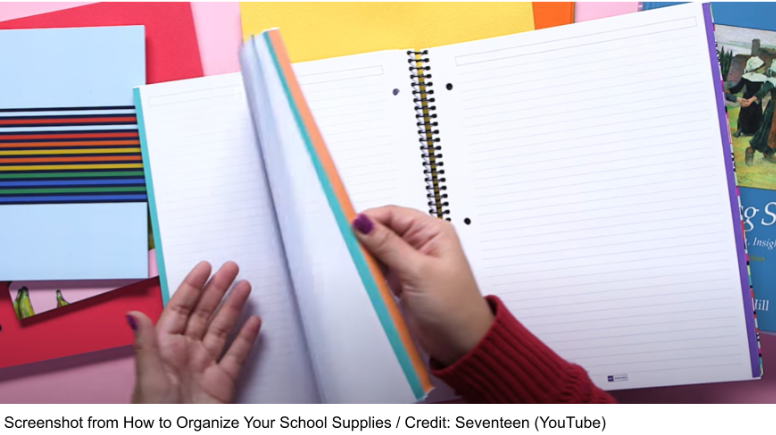
13 Jul How to Organize Your Backpack (and Keep it That Way): 5 Helpful Hacks
Best Tips for How to Organize Your Backpack
If you’re like most high school or college students, you’re probably rarely seen without your backpack. It’s safe to say that as far as studying is concerned, your backpack is essentially your life. So it only makes sense to keep it neat, organized, and clutter-free. Unfortunately, we all know this is easier said than done. And as much as your school backpack hold the most important items you need for school, it can also easily resemble a garbage bin by the end of the week. So if you’re wondering how to organize your backpack, you’ve come to the right place. We turned to some of Youtube’s organization experts for their top ticks and tricks!
Knowing how to organize your backpack can save you from turning it upside down and sifting through piles of crumpled paper and snack wrappers when you’re simply looking for a pen. Here are some easy tips we gathered from students and organization experts on Youtube and Tiktok.
- Make sure you have the RIGHT backpack. The right backpack can mean different things for different people, but there are a few things that you should always consider: fit, size, weather-proofing, and pockets. “Please pick one that’s actually going to fit you well and one that’s going to be comfortable for your shoulders and your back. One that’s durable and possibly resistant to all kinds of weather,” suggests Tiktok content creator jozadak.
Pockets are also non-negotiable as they give you plenty of organization options. They help keep everything in place by ensuring you have space for small items that tend to be impossibly hard to dig out if you’re only placing everything in one big compartment.
- Separate all your stuff into categories. In the video How to Organize Your School Supplies, Seventeen.com web editor Noelle Devoe suggests grouping the contents of your backpack according to their use—whether they are notebooks and books, hygiene products, pens and other writing materials, snacks, and other miscellaneous items like your earphones and sunglasses—and assign each category to different compartments and pockets. Most backpacks will have a big front pocket, which is the perfect place for things you’ll need easy access to throughout the day, such as snacks, pens, or a school planner.
- Arrange the contents of your backpack from big to small. You can choose to organize your backpack according to the size of the items or your class schedule. Either way, you should always see to it that your biggest and flattest items go in the back of the main compartment first. This means your big notebooks, binders, or laptops. In doing so, you’re making more space for your other items. “I have three [binders], so I use that technique where I put one the opposite way, and then pretty much the opposite after that,” shares high school student and Youtube content creator JM Everything in his video How to Keep Your Backpack Organized.
- Consolidate your notebooks. Some students like having a dedicated notebook for each subject, and there’s definitely nothing wrong with that. However, this can add to the disorganization for those who are already struggling to keep their backpacks tidy. Instead, Devoe suggests using a four- or five-subject notebook with different colored tabs or sections for each subject. Another option would be to get a binder that can fit well inside your backpack. A school binder is great for having all your notes in one place and storing papers, handouts, and activities that would usually just get stuffed inside your backpack and end up crumpled, torn, and unreadable.
- Put your small miscellaneous items in a pouch before tucking them away in your backpack’s pockets. How many times did you have to spend minutes looking for your earphone only to find the wires all tangled (or worse, frayed and broken) once you’ve finally managed to wrangle it out of what seemed like the bottomless pit that is your backpack? Small items like earphones, pens, lip gloss, and keys can easily add to the clutter in your backpack. “Go through all of these things and put them into pouches to keep them safe and organized,” suggests Devoe. Pens, for example, need to be in a pencil case instead of just being thrown in one of the pockets. “Pens can poke holes in your backpack, and the pencil will mark up the inside of your backpack. It just gets really messy,” she adds.
CHECK OUT OUR OTHER BLOGS:
⏩ Why Are School Planners Important?
⏩ 10 Best Tips on How to Organize Your School Binder for High School and College Students
⏩ 5 Best Ways to Take Notes
Want to know more about how to organize your backpack efficiently? We can help!
Chat with Themba Tutors Today! Our tutors travel to your home.
We travel to the following locations: Manhattan, Brooklyn, Queens, Staten Island, Bronx, Long Island (Nassau & Suffolk Counties), Westchester County, Connecticut (CT), and New Jersey (NJ).
Have a free consultation today.Call: (917) 382-8641, Text: (833) 565-2370
Email: [email protected]
(We respond to email right away!)
Craig Selinger
Latest posts by Craig Selinger (see all)
- Psychotherapy and Support Services at Cope With School NYC - April 12, 2024
- NYC Parents of Teens Support Group - April 8, 2024
- Here I Am, I Am Me: An Illustrated Guide to Mental Health - April 4, 2024




No Comments